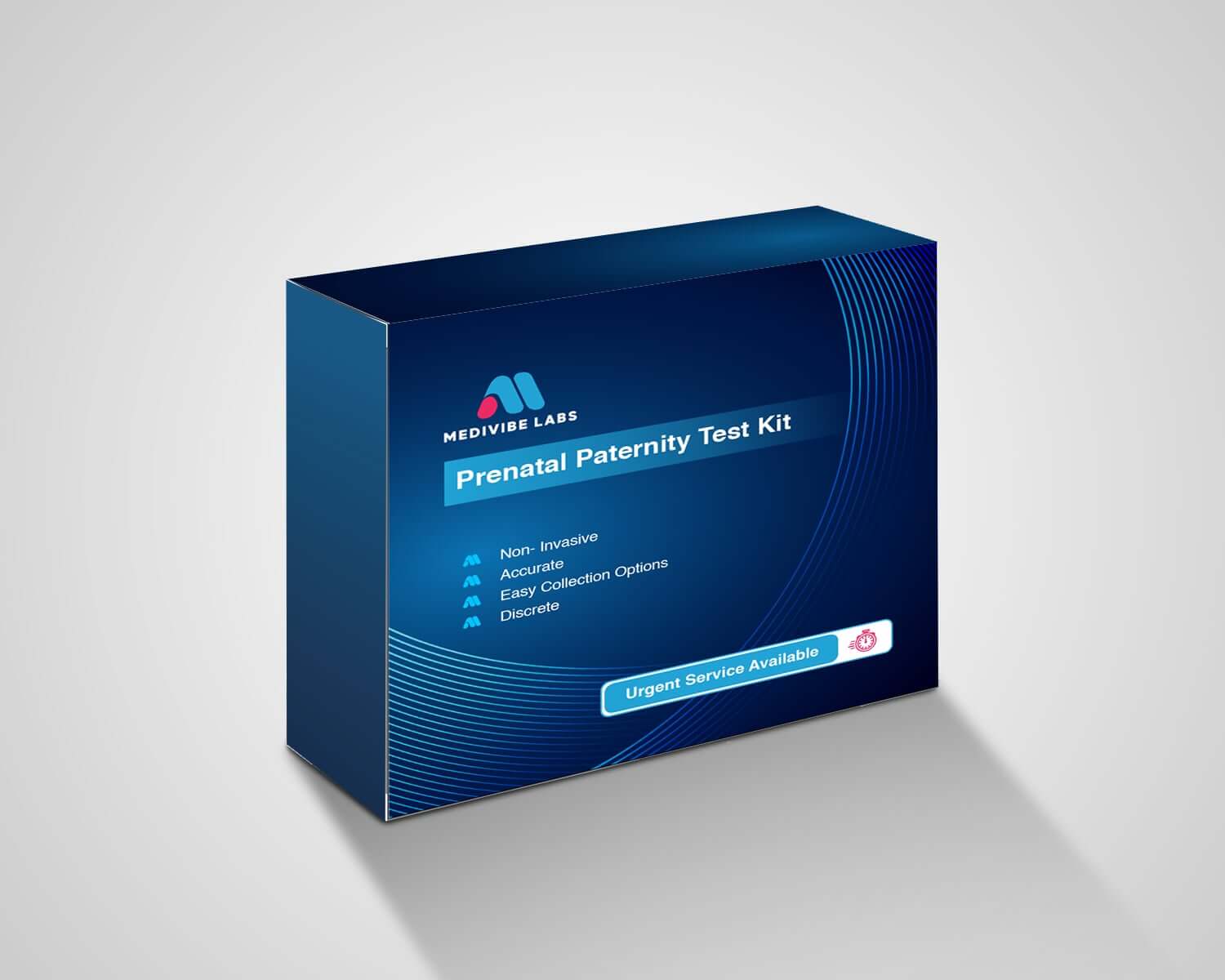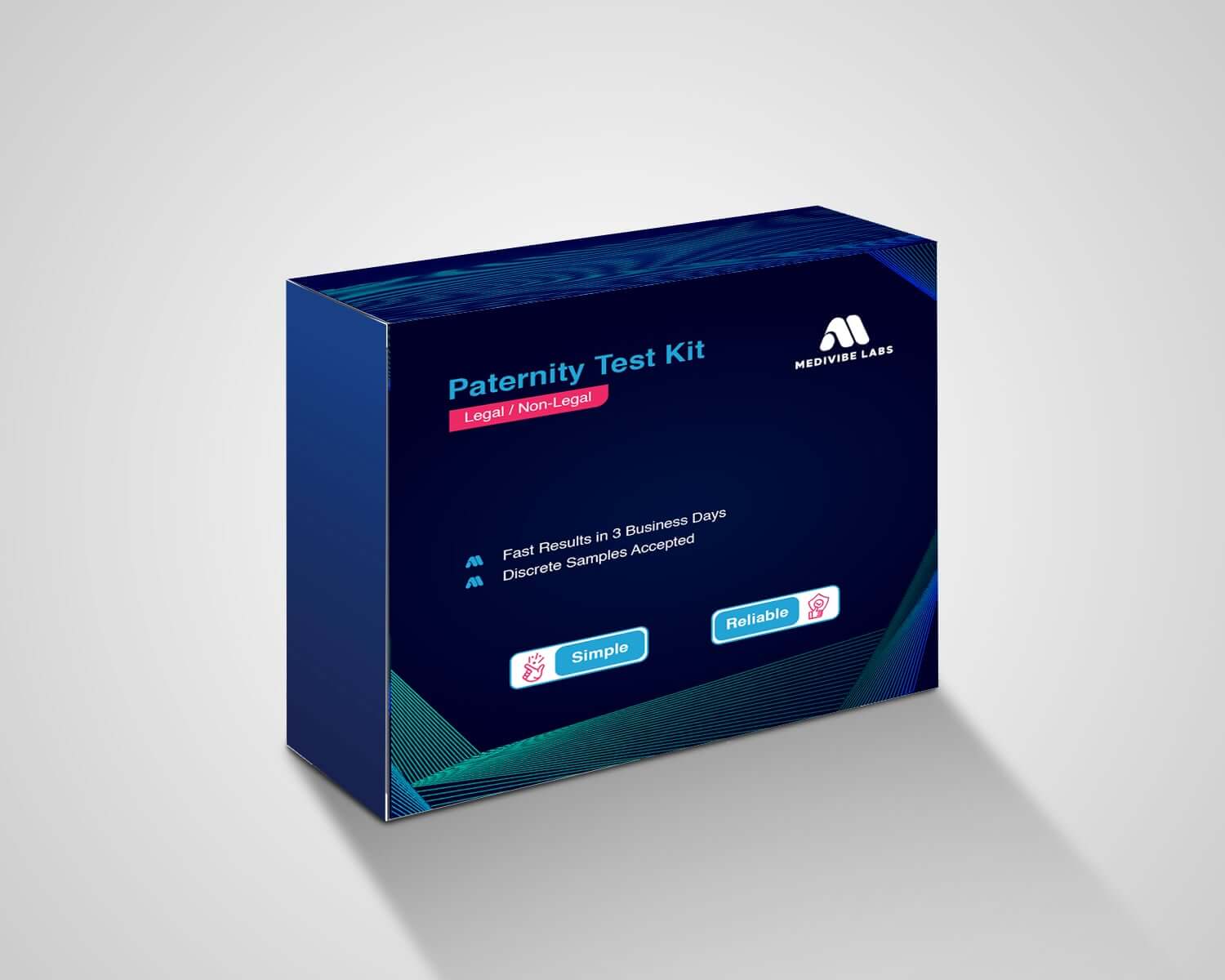Description
How It Works
- DNA Sample Collection:
- Cheek Swabs: The most common method involves using a sterile swab to collect cells from the inside of the cheek. Each individual provides a sample.
- Other Methods: Saliva, blood, or other biological samples can also be used but are less common for personal testing.
- Laboratory Analysis:
- Extraction: DNA is extracted from the collected samples.
- Genetic Markers: The lab analyzes specific loci (locations) on the DNA that are known to vary between individuals. These markers can include short tandem repeats (STRs) and single nucleotide polymorphisms (SNPs).
- Comparison: The genetic markers of both individuals are compared. The lab assesses the likelihood of shared genetic material based on the number of matching markers.
- Probability Calculation:
- The lab calculates the probability that the individuals are full siblings, half-siblings, or unrelated based on the genetic matches.
- The results are expressed in terms of percentages, typically:
- Full Siblings: Often above 99%
- Half Siblings: Around 25-50%
- Unrelated: Low probabilities.
Process Overview
- Choose a Reputable Lab: Research and select a certified laboratory that specializes in DNA testing.
- Order the Test: Request the siblingship DNA test through the chosen lab.
- Sample Collection: Follow the lab’s instructions for collecting DNA samples. This often includes:
- Not eating or drinking before the collection.
- Using sterile swabs properly to avoid contamination.
- Send Samples: Return the samples to the lab, typically via prepaid shipping.
- Receive Results: After analysis, the lab will provide a report detailing the findings, including the probabilities for each type of siblingship.
- Consultation: Consider discussing the results with a genetic counselor or healthcare professional for clarity and support, especially if the results are unexpected.
Considerations
- Accuracy: While DNA testing is highly accurate, results can vary based on the quality of the samples and the lab’s methods.
- Privacy: Ensure the lab has strong privacy policies to protect your genetic data.
- Legal Implications: Understand that results can have personal and legal implications, particularly in cases of inheritance or custody.
If you’re considering a siblingship DNA test, this process will help clarify the biological relationship between you and your potential sibling!
Frequently asked questions
- What is a siblingship DNA test?
A siblingship DNA test determines whether two individuals are full siblings, half-siblings, or not related at all by analyzing their genetic material.
- Why would someone take this test?
People may take a siblingship DNA test for various reasons, including:
- Confirming family relationships
- Legal issues (e.g., inheritance)
- Personal curiosity about family history
- How is the test conducted?
The test involves:
- Collecting DNA samples, typically using cheek swabs
- Sending the samples to a laboratory for analysis
- Receiving a report with the results, usually within a few days to a couple of weeks
- What samples are needed?
DNA is most commonly collected using:
- Cheek swabs Other options include saliva or blood, but these are less common for personal testing.
- How long does it take to get results?
Most labs provide results within a few days to two weeks, depending on their processing times.
- How accurate are the results?
Siblingship DNA tests are highly accurate. Full siblingship can be confirmed with probabilities often exceeding 99%. However, results can vary based on sample quality and testing methods.
- What do the results mean?
Results are typically presented as probabilities:
- Full Siblings: >99% probability
- Half Siblings: 25-50% probability
- Unrelated: Low probability
- Can the test determine other relationships?
While primarily designed to assess siblingship, the test can sometimes provide insights into other familial relationships, though its primary focus is on sibling connections.
- Is the test confidential?
Reputable labs prioritize privacy and confidentiality. Ensure you review their policies on data handling before proceeding.
- What if the results are unexpected?
If results differ from what was anticipated, consider consulting with a genetic counselor or healthcare professional for support and clarification.
- Can I test with more than two people?
Some labs offer tests for multiple siblings or family members to explore complex relationships, but additional samples and different methodologies may be involved.
- How much does a siblingship DNA test cost?
Costs can vary widely depending on the lab and services offered, typically ranging from $100 to $400 or more.
- What factors can affect the test results?
- Sample Quality: Contamination or improper collection can lead to inaccurate results.
- Genetic Variability: Some individuals may have less genetic variation than expected, affecting probability calculations.
- Testing Lab: Different laboratories may use varying methodologies, which can influence the outcome.
- Are there age restrictions for taking the test?
There are typically no strict age restrictions. However, minors may require consent from a parent or guardian to participate in the testing process.
- Is a siblingship test the same as a paternity test?
No, a siblingship test focuses on the relationship between two individuals, while a paternity test determines if a specific man is the biological father of a child.
- Can results be used in legal cases?
Yes, siblingship test results can be used in legal contexts, such as inheritance disputes or custody cases. However, you may need to use a legally admissible testing service that follows strict chain-of-custody procedures.
- What if one person is unavailable for testing?
If one potential sibling is unavailable, you may still be able to gather information using other family members, like parents or half-siblings, although this can complicate the results.
- How often should I test?
Typically, a siblingship DNA test is a one-time analysis for a specific question. However, if there are significant changes in family dynamics or new information arises, retesting might be warranted.
- What if I suspect adoption or other family secrets?
If there are concerns about hidden family relationships, a siblingship test can provide clarity, but it’s essential to approach the results with sensitivity and openness.
- Are there any emotional considerations?
Yes, discovering biological relationships can evoke strong emotions. It’s advisable to be prepared for various outcomes and consider seeking support from friends, family, or professionals.
- Can I trust all DNA testing companies?
No, it’s crucial to choose a reputable lab that is accredited and has good reviews. Research their credentials and ensure they follow industry standards for DNA testing.
- What should I do after receiving the results?
Consider discussing the findings with a genetic counselor or healthcare professional, especially if the results raise further questions or concerns about family relationships.
- Can I change my mind after ordering the test?
Policies on cancellations vary by lab. If you change your mind, contact the testing company as soon as possible to inquire about their cancellation or refund policies.
- What if I have more questions after testing?
Most labs have customer support teams to answer questions post-testing. Don’t hesitate to reach out for clarification on your results or next steps.





Reviews
There are no reviews yet.